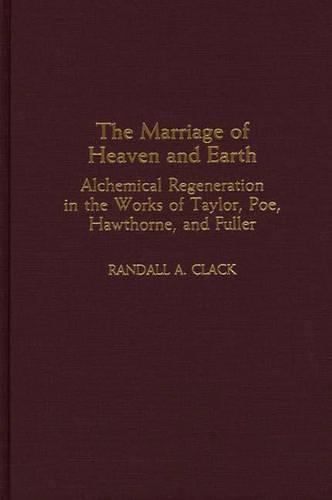
The Marriage of Heaven and Earth: Alchemical Regeneration in the Works of Taylor, Poe, Hawthorne, and Fuller
(Hardback)
Publishing Details
The Marriage of Heaven and Earth: Alchemical Regeneration in the Works of Taylor, Poe, Hawthorne, and Fuller
By (Author) Randall A. Clack
Bloomsbury Publishing PLC
Praeger Publishers Inc
30th August 2000
United States
Classifications
Tertiary Education
Non Fiction
Literary studies: general
Magic, alchemy and hermetic thought
810.9356
Physical Properties
Hardback
168
Width 156mm, Height 235mm
454g
Description
From the Middle Ages to the close of the 17th century, alchemy was fundamental to Western culture, as scores of experimenters sought to change lead into gold. Though its significance declined with the rise of chemistry, alchemy continued to captivate the imagination of writers and its images still appear in modern creative works. This book examines the literary representation of alchemical theory and the metaphor of alchemical regeneration in the works of Edward Taylor, Edgar Allan Poe, Nathaniel Hawthorne, and Margaret Fuller. While Taylor used alchemical metaphors to illustrate the redeeming grace of God upon the soul, these same metaphors were used by Poe, Hawthorne, and Fuller to depict a broader concept of redemption. These later writers used alchemical imagery to describe both the regeneration of the individual and the possible transformation of society. For Poe, alchemy became a metaphor for the transforming power of imagination; for Hawthorne, it became a means of representing the redeeming power of love; for Fuller, it figured the reconciliation of gender opposites. Thus these four American writers incorporated the idea of regeneration in their works, and the tropes and metaphors of the medieval alchemists provided a fascinating way of imagining the transformative process.
Author Bio
RANDALL A. CLACK is Visiting Assistant Professor of English at Shippensburg University of Pennsylvania and has previously taught at the University of Connecticut, Elizabeth City State University, and Southern Polytechnic State University. His articles have appeared in such journals as ESQ: A Journal of the American Renaissance and Seventeenth Century News.
